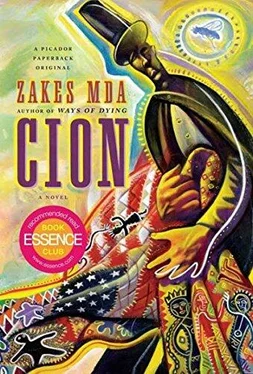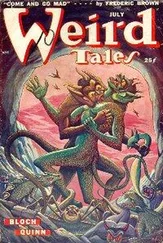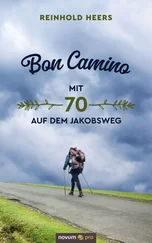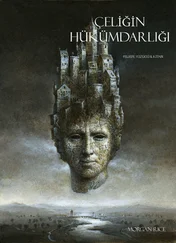“I have enjoyed your hospitality for seven months, Ruth,” I said. “It is time to move on. I will always remember your house as my home.”
I was going against her wishes, she said. After one or two sniffles she added that in any event she would not expect her wishes to count with me because they don’t count even with her own children.
I could hear more sniffles as she gave me some of her bottled sauces and relish and a glazed clay jar of stewed tomatoes, which she said I should keep until winter and only eat the contents then. After that I must return her jar. Did she expect me still to be here next winter?
Mahlon was quite dispassionate about my leaving, if you discount the smile. He was sitting on his swing when I said goodbye. Obed and Orpah were helping me to my RV with my suitcase, Ruth’s bottles and other odds and ends that I had accumulated during my stay in Kilvert. These included manila folders with Orpah’s designs saved from the tsunami. All he said as I shook his hand, assuring him that I would see him from time to time at the Center, was: “Don’t let the bedbugs bite.” And then he went back to gazing at his garden while swinging to the rhythm of the chimes.
“Todoloo! You ain’t gonna see nobody at the Center,” said Ruth standing at the door. “You’d better come and visit and have a wholesome meal.”
I feel like lord of the manor as I open my RV and am welcomed by a whiff of stale cooking oil. I like the way they have refurbished the RV. It is worth every penny of the seven thousand dollars I paid for it.
The interior is enhanced by a dogwood quilt with yellow, brown and green sunflowers on white. The backing is of bleached muslin. It is a gift from Barbara and was made by her grandmother in 1935. I did not think I deserved such a valuable and highly sentimental present but she told me: “It needs to be given to someone who will love it. So, I figure you’d do that.” It’s been in the family for all the years, and what makes it even more valuable is that it was hand-sewn — nine stitches an inch, which look so fine they can easily be mistaken for machine-sewn stitches. I would have loved to keep this quilt in a box so as to preserve it for posterity, but Barbara insisted that I hang it on the wall.
Mourning can be exhausting, so I kick off my shoes and sprawl myself on the bed that is covered with another quilt: a green and white Irish Chain that I bought from Ruth months before I left her house. At first she had been reluctant to sell it to me, and then later agreed to part with it at a great discount, adding: “I don’t sell nothing to my kids. Might as well not sell nothing to you neither.”
I reach for one of the manila folders next to my bed and look at Orpah’s latest work. The ghost trees are still there. But on them there are collages of ghost orchids made from bits of plastic, paper and fabric. I remember her telling me this morning when she delivered this last batch before we went to the funeral: “I want them pictures to tell a story. Like back in them days if something happened there’d be a song wrote about it.”
These collages are a song.

The women have remarked on how vastly my quilting has improved. It is because I do nothing much but quilt. I sit at the Center and cut blocks — not with the rotary cutter, but the scissors that the women insist I should learn to master. I arrange the blocks on the long table into the pattern I want, and listen to gossip. Often my opinion is sought since the belief that I am some kind of a shaman persists. They believe that because I am from Africa I have knowledge of mysterious cures. Such as the plant they tell me cured Sissy — I think she was one of their relatives — who suffered from diabetes. She had tried some of the best doctors to no avail. Then she went to Africa and learned of a plant from an old shaman. The shaman told Sissy to boil the plant and drink half a cup a day. When she returned to the U.S.A. she discovered that the plant was in fact rhubarb. She boiled the rhubarb every morning and after a few months Sissy’s blood sugar became normal. Sissy died at ninety-five from old age — after suffering from diabetes from the time she was a child.
The common wisdom among my quilting partners is that I know more of such cures but am hiding my light under a bushel, which is what Jesus preached against in the Sermon on the Mount. One of them adds: “Because he don’t like folks that hide their talent and don’t share it with nobody.”
Orpah takes to hovering around the Center, doing what they call here “hanging out.” Women, and an odd man now and then, usually hang out at the Center for the conversation. I have heard some of the hottest political debates in these hanging out sessions. But Orpah never participates in the conversation. She just sits there and watches me quilt, with a deep longing in her eyes. I take it that she wishes she could be doing what I am doing at that time, although I suspect she despises it for it is not as adventurous as her own would be. Mine are blocks and triangles that any traditional quiltmaker can do. Now and then she giggles or chuckles when someone says something funny.
When Mahlon is tending his garden of gnomes Orpah is at the Center. When Mahlon is brooding with the other elders at the Center Orpah goes home and locks herself in her room, I suppose drawing or playing the sitar or reading what her mother once referred to as ghost stories.
Her first visit to my RV was unannounced. She just knocked at the door, and when I opened she dumped new drawings in my hands and left. Not a single word. Then the visits became more frequent even when there were no new drawings to keep. I love these visits, although I fear what Mahlon will do one of these days because she defiantly walks into my RV even when she can see that her father is looking on from the porch at the Center. The women have jokingly said that one day he’ll burn my RV. Obviously they find the whole thing entertaining. My life has become the village’s soap opera.
When Orpah visits we just sit and talk. Nothing else happens. She is usually here at lunchtime and she opens a can of Spam or takes out a frozen pizza from the fridge and tosses it into the microwave. Then she tells me about her troubles with Ruth. Her eyes light up when she talks of her works that have escaped her spring cleaning, which has become more frequent. One day when I am better skilled, I promise her, I will translate some of her designs into quilts.
Sometimes Obed visits as well and the siblings talk about their own things that I know nothing about, or about Nathan. From what I gather things have soured between Nathan and Orpah since the festival. Now she makes cruel jokes about him.
“I look at that guy and I don’t like his haircut,” she says. “He looks like a Muppet and I find that disturbing.”
“Which of the Muppets?” Obed asks.
“The mad scientist…I forget his name.”
“He can’t be no scientist…not even a mad one. He’s just a dumb-ass prick.”
And then they laugh.
He is saying all these mean things about Nathan because he has had a falling-out with him, for a different reason. To raise money for his trip to Connecticut Obed disposed of a trophy that he, Nathan and two other guys won at a tractor pulling contest at the County Fair last August. They had agreed that the trophy would be with each one of them for three months at a time. After it had graced the two guys’ mantelpieces they had handed it over to Obed in February and at the end of May he was supposed to give it to Nathan. Nathan discovered that Obed had pawned the trophy. He is now so pissed off with him that they almost came to blows at a bar in Athens. Obed tells me: “He threatened to whup my ass and I told him, ‘Bring it on, bitch.’” The denizens of the bar stopped the fight before it could become bloody and messy.
Читать дальше













